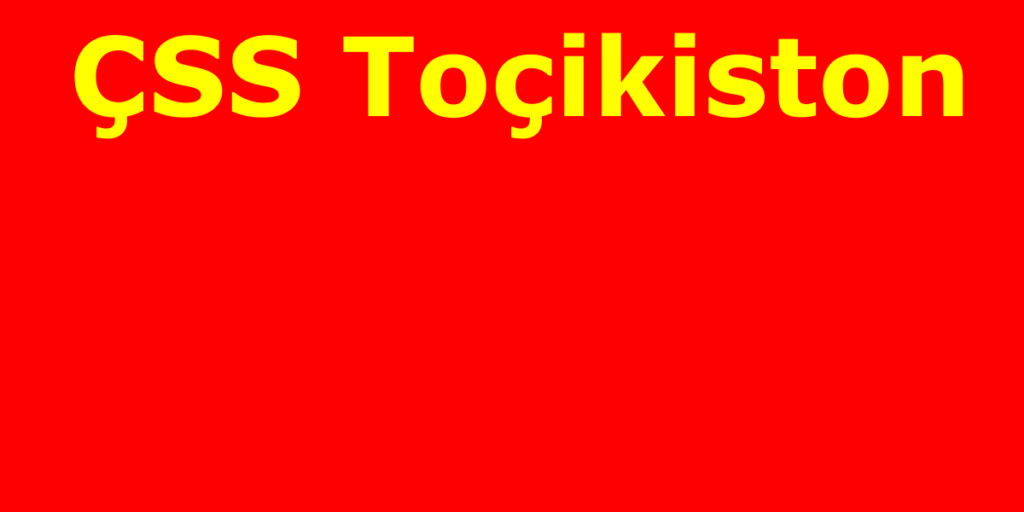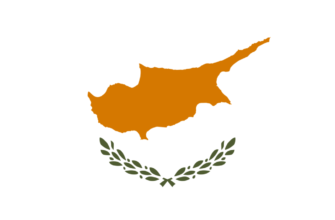The Republic of Tajikistan is a state located in Central Asia in the foothills of the Pamirs. The name of the republic originates from 1924 as a result of the national-territorial division of Central Asia. Subsequently, it became part of the USSR under the name Tajik ASSR and after SSR.
This is what the modern flag of Tajikistan looks like:

History of the flag
The earliest evidence of banners used by the ancestors of the Tajiks is preserved in the oldest monument of ancient Iranian literature «Avesta». This banner is called Deravsh Kaviani, the legendary royal standard of the ancient times of Iran. Its artistic execution is made according to the descriptions of the sources.

The form of this pattern is also presented on the modern Standard of the President of the Republic.

There were ancient states on the territory of modern Tajikistan. It was part of caliphates (Righteous, Umayyad or Damascus, Abbasid or Baghdad).



In the middle of the 19th century, the territories of Central Asia became part of the Russian Empire. After the revolutionary events of 1917 against Russia (the then Bolshevik government) came the population of Bukhara Emirate (1756-1920), which included the current Tajikistan.

The Civil War (Basmachi) and the subsequent territorial demarcation resulted from the fact that the Tajiks were first part of the Bukhara People’s Soviet Republic (SR).


Then Bukhara Socialist SSR, and in 1924 already in the status of an autonomous republic within the Uzbek SSR.


The original version of the symbol was somewhat different.

From 1929 to 1991, Tajikistan was part of the Soviet Union as one member state with the status of the Republic. Tajikistan was part of the Soviet Union as a member state with the status of the Republic. During this period, the country used several variants of the symbol:
- (1931–1935);

- (1935-1936);

- (1936-1938);

- (1938-1940);

- (1940-1953).

After 1953, up to the collapse of the USSR, the flag of the republic was designed according to a monotonous form. In the first year of independence, the same symbol was used, but without the sickle and hammer.

 Flag of Tajikistan (1991-1992)
Flag of Tajikistan (1991-1992)
The modern version of the flag was approved in November 1992.
Description
The modern flag of the Republic of Tajikistan is a rectangular cloth with the proportions of the sides as 1 to 2 and divided into three horizontal stripes. The color scheme of the current flag is the same as in the Soviet period — red, white and green. The red (top) and green (bottom) stripes are the same width and equal to 2/7 of the width of the symbol, while the white, which is in the middle, is 1.5 times wider than them, that is 3/7.
In the central part of the flag in the white sector there is a golden crown with seven five-pointed stars in a semi-circle. The height of the crown is 4/5 of the width of the white part, and its length matches the width of the middle stripe. The circles in which the drawn stars are conventionally inscribed can be circumscribed with a diameter of 3/20 the width of the white sector, and the radius of the arc of their location is 1/2 the width of the middle stripe.
Colors of the flag of Tajikistan
The flag of the Republic of Tajikistan uses four colors: red, white, green and gold.
Meaning of colors and flag symbol
The colors and symbols on the country’s flag have their own interpretations and designations. And there is not just one, but several. For example,
- The population of the ancient Iranian society, being free and full of rights, according to «Avesta», consisted of three estates, each of which was designated by some color:
- Red is the military nobility (a revered and noble class);
- White — the estate of the clergy (spirituality), moral purity and holiness;
- Green — free communicants (cattle farmers) — a symbol of nature, prosperity and youth.
- In the Pamirs, it is believed that the colors are deciphered as
- Red — well-being, happiness, joy;
- White is clarity and purity;
- Green is youth.
- or else
- Independence, freedom — red;
- Peace and tranquility is white;
- Prosperity and livability is green.
- another interpretation gives the following explanation
- Sunshine, victory, triumph — the streak of red;
- The snow on the overhanging peaks of the mountains, which occupy 93 percent of the country, is the white sector;
- The symbol of the spiritual essence of Islam is the green stripe.
In addition to all the above designations of white, it also symbolizes the main wealth — cotton.
The crown has three prongs that signify the historical regions of the country — Khatlan, Nuravshan and Badakhshan, the unity of which is symbolized by the high spire. The seven golden stars are a symbol of happiness, harmony and well-being.
According to an ancient Tajik belief, the heavens consist of seven beautiful gardens, with seven mountains around them, and a star shining above each of them.
Other Flags
The Standard of the President of the country looks the same as the flag, but with the difference that instead of the crown is represented by a different figure.

Similar flags
The Tajik flag is similar in style and color palette to the flag of Iran, which is not surprising since both peoples are considered related Indo-Aryan peoples.

There are similarities between the flag and the symbol of Hungary.

Interesting facts about the flag
In September 2011, at a ceremony in the capital of Tajikistan, on the occasion of the 20th anniversary of independence, the national flag was raised to the highest flagpole in the world (165 meters), thus breaking the record and contributing to the Guinness Book of Records. The previous record (162 m) belonged to Azerbaijan.
General information about Tajikistan
| Official language | Tajik (state language),
Russian (language of international communication) |
| Capital | Dushanbe |
| Territory | 141,400 km² |
| Population | 9,126,600 people |
| Currency | somoni (TJS, code 972) |
| Phone Code | +992 |










I once traveled to Tajikistan and was amazed by the flag’s vibrant colors! It reminded me of the stunning landscapes and the warmth of the people there. I’m so grateful for that experience; it opened my eyes to a beautiful culture. The flag really symbolizes their rich heritage!
I remember visiting Tajikistan and seeing the flag waving proudly everywhere. It filled me with pride and gratitude for the country’s rich culture. The vibrant colors symbolize unity and hope, reminding me of the beauty in diversity. Such an inspiring experience!
As a traveler, I was amazed by the vibrant colors of Tajikistan’s flag during a festival. It reminded me of the warm welcome I got from the locals. Truly grateful for such rich culture and history that shines through their beautiful flag!
As a traveler, spotting the Tajikistan flag always got me hyped! Once, I found it waving proudly at a tiny mountain village. It reminded me how cool it is to connect with different cultures. Feeling lucky to have seen that beauty firsthand. Thanks for sharing this!
As a traveler, spotting the Tajik flag always made me smile. Once in Dushanbe, a local explained the symbolism in minutes — mountains and stars representing strength and unity. It stuck with me how much a flag can tell you about a country’s heart and story. Truly inspiring!